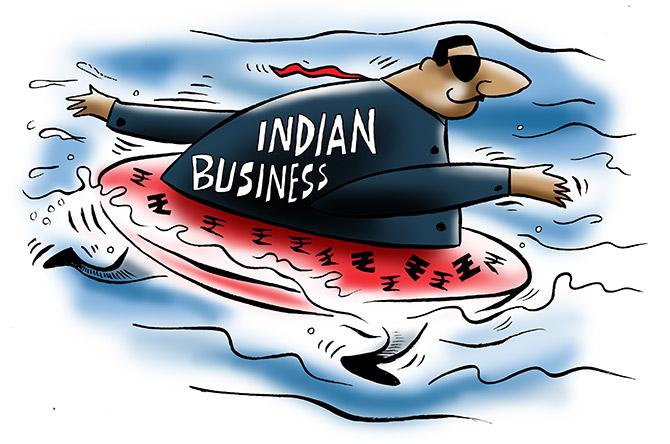 | « Back to article | Print this article |
Covering 37 different legislations such as the Partnership Act of 1932, Insolvency and Bankruptcy Code, and laws on environmental protection, consumer protection and labour interests, the recommendations have been shared with Prime Minister Narendra Modi and Finance Minister Nirmala Sitharaman.

Fixed time frames for settling legal proceedings, financial penalties instead of criminal charges, and a more flexible dispute settlement system feature in the Confederation of Indian Industry’s (CII’s) list of urgent steps needed to decriminalise business offences.
Seeking intervention from different arms of the government to examine how the current criminal provisions can be treated as civil offences with penalties, the CII has laid out 12 ways to decriminalise business offences, thereby improving investor confidence and boosting ease of doing business, the industry body said on Sunday.
Covering 37 different legislations such as the Partnership Act of 1932, Insolvency and Bankruptcy Code, and laws on environmental protection, consumer protection and labour interests, the recommendations have been shared with Prime Minister Narendra Modi and Finance Minister Nirmala Sitharaman, the chamber said.
These include settling technical offences with penalties and not legal prosecution and making summons cases concerning relatively minor offences compoundable in nature by expanding the scope of Section 320 of the Criminal Procedure Code, 1973 and creation of a transparent mechanism for no-guilt admission.
Crucially, the settlement of minor tax and economic offences without guilt may reduce the pending backlog of cases, CII has argued.
The CII has called for the government to adopt a fixed time frame for filing complaints on economic offences and for completion of probe and adjudication, with a few exceptions.
Lengthy prosecution periods have been a constant complaint of the industry.
CII has asked the government to award costs where courts have observed a frivolous litigation or dilatory tactics.
The CII has backed the introduction of Deferred Prosecution Agreements (DPA) in India’s dispute settlement process - with certain exceptions.
DPAs continue to be controversial, especially in the UK where it has been in force since 2015.
Under the system, a criminally charged corporate agrees to certain conditions, such as paying financial penalties and in turn, charges against them are laid and proceedings automatically suspended.
Schemes that allow one-time settlement and plea bargaining have also been suggested by the CII.
The government may need to shake up the judicial process as well.
The government may need to expeditiously fill up the vacancy of judges to ensure that special benches act in full strength and increase the role of technology in courts.
“A change in the nature of penalty provisions in business and economic laws represents the next stage of reforms in ease of doing business.
"Divesting criminal penalties from business laws will strengthen confidence among young entrepreneurs and investors in doing business,” said Vikram Kirloskar, president of CII.